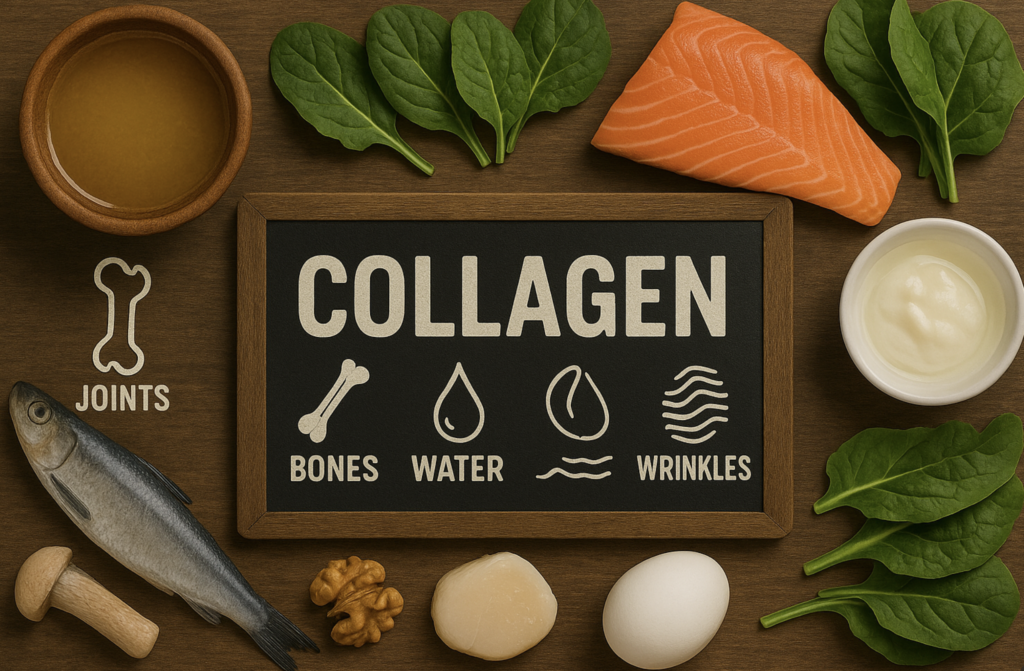After 40, collagen production begins to decline sharply—leading to wrinkles, sagging skin, joint pain, and loss of muscle tone. While collagen supplements have exploded in popularity, many women still wonder: Do they really work?And which type is best? This guide breaks down the truth about collagen, its benefits for women over 40, and how to choose the right supplement.
✨ 1. What Is Collagen and Why Does It Decline After 40?
- Collagen is the most abundant protein in your body—found in skin, joints, bones, and muscles
- Production slows in your 30s and plummets after menopause
- This decline leads to fine lines, joint stiffness, slower recovery, and thinner hair
💡 You lose about 1–1.5% of your collagen each year after 40.
🧬 2. Types of Collagen and What They Do
- Type I: Supports skin, bones, and tendons (most abundant)
- Type II: Found in cartilage and joints
- Type III: Maintains skin elasticity and gut lining
💡 Multi-type collagen blends are ideal for full-body support.
🥤 3. Do Collagen Supplements Actually Work?
- Yes—studies show improvements in skin hydration, elasticity, and wrinkle reduction
- Type II collagen improves joint mobility and reduces pain
- Hydrolyzed collagen (collagen peptides) is easiest to absorb and use
💡 Results typically appear within 4–12 weeks of daily use.
🧴 4. Best Types of Collagen Supplements for Women Over 40
- Hydrolyzed bovine collagen peptides – rich in Types I & III for skin and bones
- Marine collagen – ideal for skin and hair, easier to digest
- Undenatured Type II collagen (UC-II) – best for joint health
💡 Choose third-party tested, clean-label brands without fillers or sugar.
🥗 5. How to Maximize Collagen Absorption
- Pair with vitamin C to support collagen synthesis
- Avoid excess sugar and processed foods, which break down collagen
- Include bone broth, fish, egg whites, and leafy greens in your diet
💡 Add collagen to smoothies, coffee, or oatmeal for an easy daily boost.
Collagen supplements can be an effective tool for women over 40 dealing with skin aging, joint discomfort, and hormone-related tissue loss. The key is choosing the right type—and taking it consistently. Combined with the right diet and nutrients, collagen can help you look and feel more vibrant as you age.
Omega-3 Benefits for Women Over 40: Brain, Hormones & Inflammation
Cleveland Clinic: Do Collagen Supplements Work?
